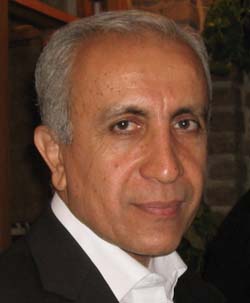Recently I have received many letters and messages from members and supporters of the Mojahedin-e Khalq Organization (MKO) and the National Council of Resistance (NCR), in particular from France, Iraq and Albania. These communi
Apparently when Iraj Mesdaghi issued his first report about the unrealistic policies of the NCRI and directly questioned the cult leader Massoud Rajavi, and consequently Abdol Karim Qasim and Mohammad Reza Rouhani, two prominent members of the NCR, resigned as a sign of protest and revealed many facts about the internal affairs of the Council, and Iraj Mesdaqi wrote his second report on the anniversary of the first one, and then the argument of Esmail Yaghmai with the organization erupted over financial scandals, an unusual atmosphere was created inside the NCR. This resulted in several sessions being held one after another over a short time, even though no session had been held for a long period.
The question “where is Massoud Rajavi?” continuously asked by the members and supporters has really taken the breath of the leaders. Of course the officials have no response to give but to insult and accuse the person asking such a question. The members of the NCR openly say that this a typical trick used by Cult leaders to sanctify themselves.
After all this, the authorities of the NCRI instructed the members to denounce their former colleagues; those who left the Council and criticized its internal undemocratic relations. As a result, articles in this regard were published by the likes of Mansur Qadarkhah and Parviz Khazai and others. But the majority refused to take part and did not accept to betray their old friends and repeat the MKO’s fabricated lies about them. Of course they had their own excuses. Some put it this way, that it would be better that they keep their contact with them in order to keep the way back to the NCR open for them. Some explained that they have family relationships and old friendship so they would be ashamed to turn against them. Some of course being under pressure by the MKO leaders did write something without mentioning any names just to comply with their demands.
Reports indicate that the NCR members openly bring their disputes for discussion to the sessions and complain about the lack of the minimum of democratic rights when decisions are made. The articles that the members write for the websites and publications are edited by NCR officials before being published and sometimes their contents are totally altered.
The NCR members argue that although the MKO members have accepted a super military discipline and they must accept orders without question, this obviously should not be the case for the NCRI members.
The present members of the NCRI discuss the term “national” in the National Council of Resistance and say that this means that the Council must contain all tendencies of the Iranian people, but in reality it only represents the MKO and its policies and ideas and only obeys the instructions of Massoud Rajavi. The same argument is put for the MKO satellite television program which is called “National TV” but only reflects the ideas of the Rajavi cult.
They also argue that the term “council” means that all decisions must be taken collectively after adequate discussion; otherwise it has no difference from the Mojahedin-e Khalq Organization. They say that from the beginning it was accepted that the policies of the Council be criticized and opposed by the members, but now anyone doing so is accused of being at the disposal of the Iranian regime. This trick is constantly used to silence the discontented members, though the critics continue with their disputes. In many Western countries the members and supporters of the NCR talk about these issues openly and bluntly.
One other matter the members claim is that in recent years many members left the NCRI but no one was recruited, and all those proposed to become members were opposed by the MKO leaders who hold hegemony over the Council. They ask firstly, why they do not allow more dignitaries and organizations to become members and secondly, why the opinions of the present members, when they are not in agreement with the MKO policies, are immediately ruled out and suppressed.
We can deduct from the letters and messages received from within the NCRI, that we must expect more dispatches from the Council in the near future which will reveal more facts about the undemocratic internal relations of the NCRI.
Iran interlink,



